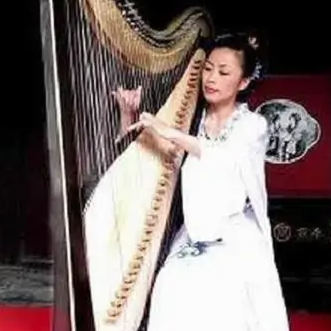Cui Junzhi

Cui Junzhi, the world's chief Konghou player, was originally a national first-class player of the Central Chinese Orchestra. Cui Junzhi is currently living in the United States and China, teaching at San Jose State University, as a visiting professor at the China Conservatory of Music, the Central Conservatory of Music, and the Artistic Director of the China International Konghou Ensemble.
Cui Junzhi was originally a solo performer of the Central Chinese Orchestra. He received a good music education since childhood, and has a high degree of literary and artistic accomplishment. He graduated from the Department of Instrumental Music of the China Conservatory of Music in 1969. During school, she majored in piano, erhu, and matouqin. After graduation, he mastered harp playing skills while working in Hebei Song and Dance Theater. All these laid a solid foundation for her future Konghou performance.
Reform Konghou
In 1979, Cui Junzhi participated in the reform and development of Konghou, fell in love with the reborn Konghou at first sight, "linked his life closely with Konghou", and devoted himself to the career of Konghou playing. While reforming, composing, and performing, she has achieved gratifying results. Cui Junzhi was the first person to master the modern Konghou playing method. Based on the harp playing technique, she combined the playing charm and sound characteristics of traditional national musical instruments such as Guzheng, Guqin and Pipa to create a complete set of Konghou playing skills.
stage performance
In 1980, Cui Junzhi and her Konghou began to perform on stage, adding a wonderful and moving instrument to the music world. Since then, Cui Junzhi and her Konghou have not only frequently appeared in concerts, radio and television, but also frequently appeared on the international stage, such as Tokyo Music Festival, Singapore Music Festival, Austrian National Arts Festival, etc. .
teaching
Cui Junzhi went to Taiwan to perform and teach twice in 1999 and 2000. In mid-summer of 2005, Cui Junzhi, a famous Chinese Konghou player, was invited by the artistic director of the Hsinchu County National Orchestra of Taiwan to teach Konghou in Taiwan, China. Nearly 40 Taiwanese girls participated in Teacher Cui Junzhi's "short-term training". They were all under the age of 20. According to the introduction of the group leader, these girls had already bought Konghou, but they could not find a teacher. Teacher Cui Junzhi went to Taiwan in person. Everyone was very excited about the lecture. Under the suggestion of Mr. Cui Junzhi, the establishment of the "Taiwan Jiufeng Women's Konghou Band" was announced on the spot. These nine phoenixes will soon fly back to the mainland and the world. Cui Junzhi said that Konghou performance art, which is full of Chinese complex, will be like a rainbow to communicate and enhance the hearts and friendship of people on both sides of the Taiwan Strait.
writing a book
Her performance is simple and inherent, skillful and rich in expression, which has won the appreciation of domestic and foreign musicians and audiences, and won the reputation of "Konghou National Player". Her performance and composition have won many awards in the relevant competitions of the Ministry of Culture. Her Konghou music piece "Bamboo of Concubine Xiang" won the second prize of the 3rd National Music Composition (National Instrumental Music) Competition, and her textbook "Konghou Heaven and Earth" is the earliest authoritative book on Konghou performance.
Cui Junzhi is now a teacher at San Jose State University. Although she is in a foreign country, she still promotes and teaches Konghou, a Chinese national musical instrument, as her lifelong career. For more than 20 years, whether living in China or the United States, Cui Junzhi has integrated himself with Konghou. She always has one pursuit in her heart, that is, to carry forward the national music culture of Konghou.
In order to commend Cui Junzhi's contribution to promoting Chinese music culture in various parts of the United States over the years, the City of Milpitas in the United States declared November 1 every year as "China Kong Hou Day". There are more than 100 people in the world who can play Konghou, all of whom are directly or indirectly Cui Junzhi's students.
Similar artist
Involving musical instruments
Involved portfolio
Involved news
Popular artists
- 01 Zhang Xiuyan
- 02 Chen Tao
- 03 Li Muliang
- 04 Zhu Changyao
- 05 Zhang Gaoxiang
 渝公网安备 50010702504639号
渝公网安备 50010702504639号